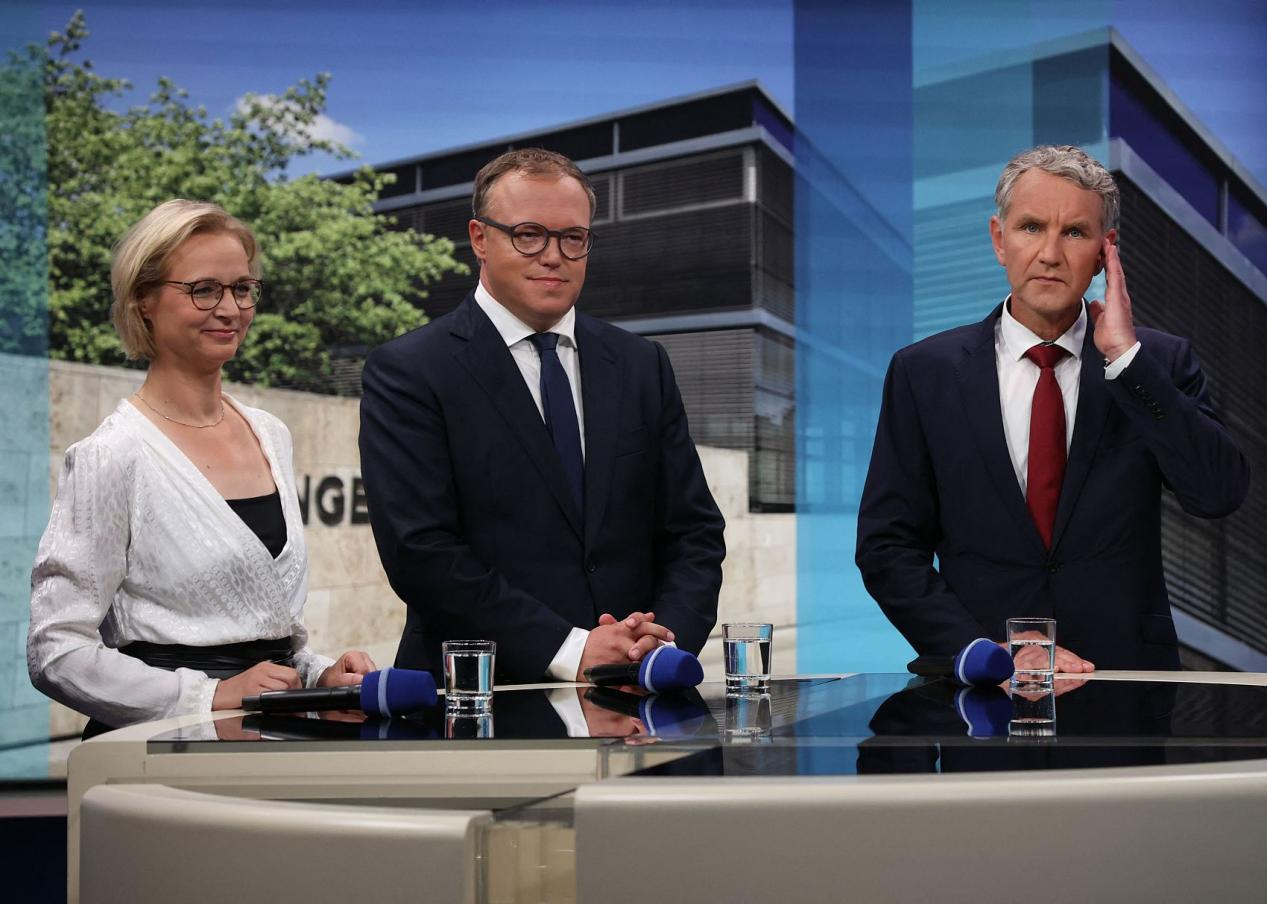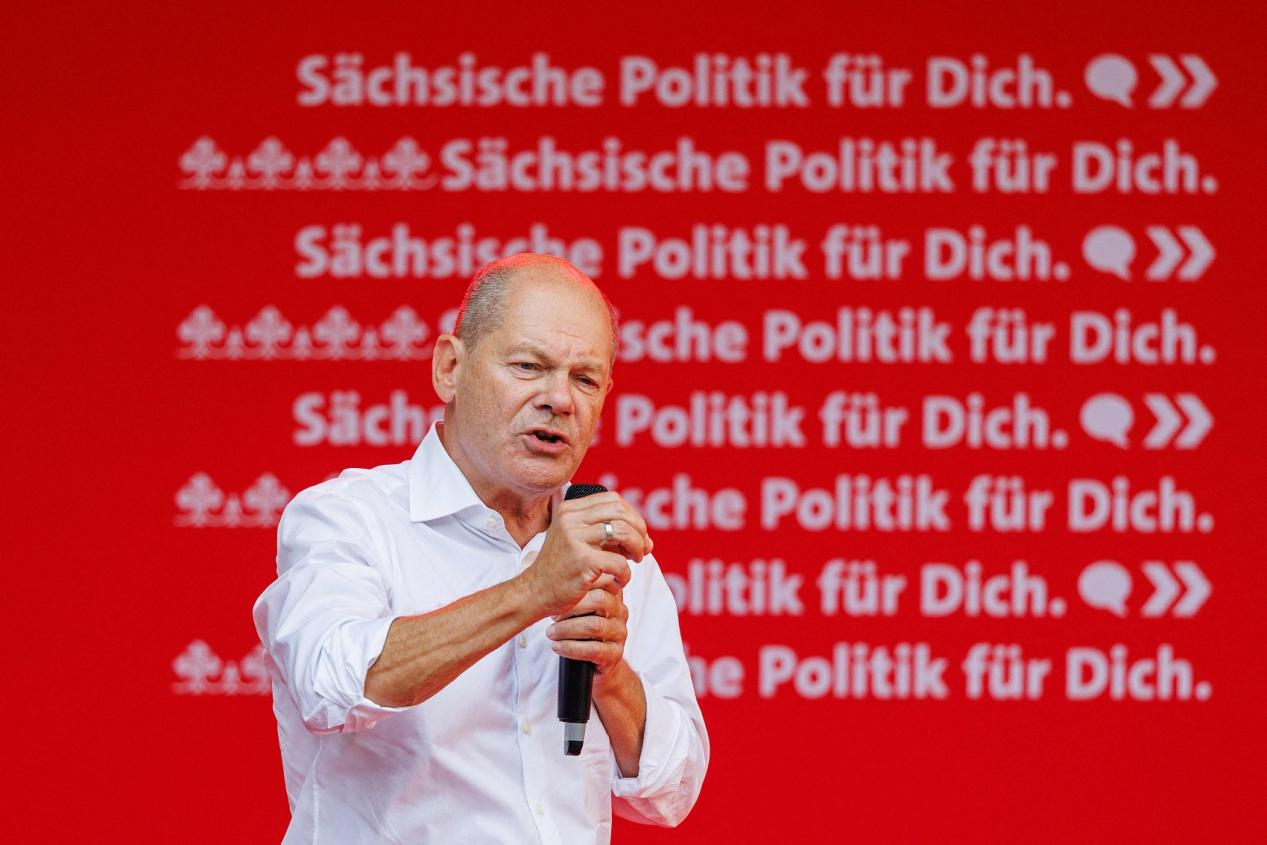The Alternative for Germany (AfD) became the first far-right party to win a state legislature election in Germany since World War II, grabbing 32.8% of the vote in Thuringia on Sunday.
In neighboring Saxony, projections from ARD and ZDF public television put the Christian Democratic Union (CDU) at 31.9%. The CDU has led the state since German reunification in 1990, now leading the AfD by only a narrow margin.
The AfD made substantial gains in Thuringia and Saxony compared with the last state elections in 2019.

Top candidate of the far-right AfD party Bjoern Hoecke attends a TV debate at Thuringia's State Parliament in Erfurt, eastern Germany, on September 1, 2024. (Photo: CFP)
However, AfD is unlikely to be able to govern as other parties have so far refused to collaborate with it to form a majority.
Still, the nationalist, anti-migration, and Russia-friendly party could end up with enough seats in both states to block decisions requiring a two-thirds majority, such as the appointment of judges or top security officials, giving it unprecedented power, Reuters reported.

German Chancellor Olaf Scholz attends regional election campaign in Saxony, August 30, 2024. (Photo: CFP)
With a year to go until Germany's national election, the results on Sunday punished German Chancellor Olaf Scholz's fractious coalition, which could aggravate infighting, accordign to Reuters.
All three ruling parties suffered defeat in the Thuringia state election, with Scholz's Social Democratic Party (SPD) receiving only 6.1% of the votes, and the Greens and pro-business Free Democrats both failed to reach the 5% threshold needed to stay in the two states' parliaments.
Furthermore, the populist leftist newcomer, the Sahra Wagenknecht Alliance (BSW), founded by a former member of the East German Communist Party, performed better than all three coalition partners in its first state elections, coming in third place.
"The results for the AfD in Saxony and Thuringia are worrying," Scholz said. "The AfD is damaging Germany. It is weakening the economy, dividing society, and ruining our country's reputation."
Sunday's results could pressure the German government to be tougher on immigration and intensify the debate over support for Ukraine, Reuters reported.
Author | Xachary, Zhou Jing (intern)
Editor | Will, James
















